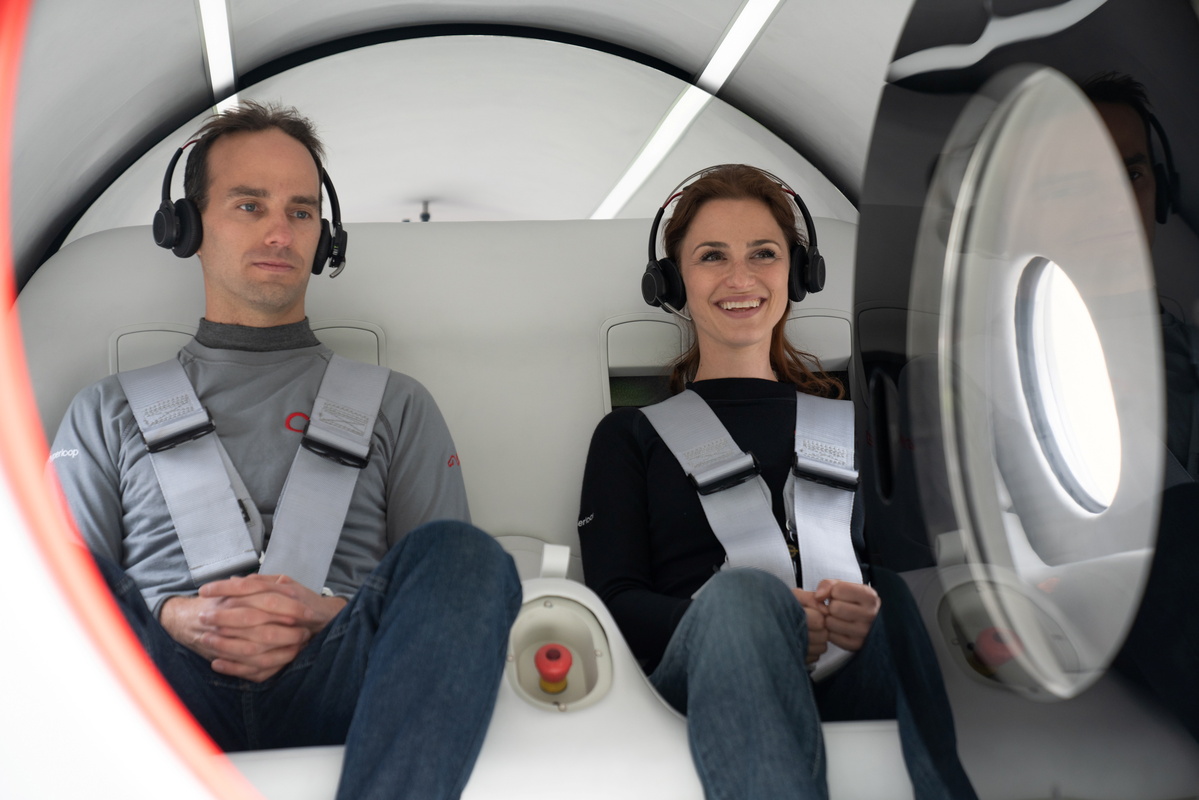Hyperloop pod carries first passengers in test


The first human passengers have taken a ride on a new form of high-speed transportation that could eventually bring commuters into London, New York, and Beijing at speeds in excess of 1,000 kilometers an hour.
The technology, in which people are ferried in pods that lunge through vacuum tubes, is being developed by Virgin Hyperloop.
Trials of the potential new public transit option conducted in a desert in Nevada, in the western United States, saw pods reach a speed of 172 km/h.
Sky News said the two "passengers", Josh Giegel and Sara Luchian, who are executives at the company owned by billionaire Richard Branson, bore no ill effects from the 15-second test conducted outside the city of Las Vegas.
Luchian, the company's director of customer experience, told the BBC the trip was "exhilarating, both psychologically and physically".
The Guardian newspaper quoted Sultan Ahmed bin Sulayem, chairman of Virgin Hyperloop, after witnessing the test as saying: "I had the true pleasure of seeing history made before my very eyes."
Sky News quoted Jay Walder, chief executive of Virgin Hyperloop, saying: "I can't tell you how often I get asked 'Is Hyperloop safe?' With today's passenger testing, we have successfully answered this question."
The company claims journeys in excess of 1,000 km/h will be possible, and that they will be quiet, thanks to the magnetic propulsion system.
The BBC said Virgin Hyperloop intends to build elevated or underground tracks, so they do not add to congestion on the surface. The company claims the pods will be autonomous and on-demand for travelers.
Reuters said Virgin Hyperloop has selected the US state of West Virginia for a proposed $500 million certification center and test track, where additional testing and development will be carried out.
2030 target
The company reportedly hopes to attain safety accreditation by 2025 and start commercial operations by 2030.
Several other companies are known to be working on transportation systems with similar principals but none is believed to have conducted tests with passengers.
The concept was first popularized by Tesla founder Elon Musk and advances the world's best-existing high-speed rail technology, the magnetic levitation, or maglev, train by essentially placing the track inside a vacuum.
A senior manager at Virgin Hyperloop told the BBC in an earlier interview the company hopes to ferry people between London's Gatwick and Heathrow airports, which are 72 km apart, in just four minutes.

































